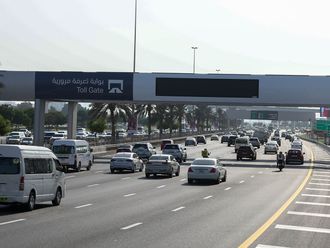Dubai: The Dubai International Financial Centre (DIFC) must reduce its fees, allow fund managers to locate their funds outside its jurisdiction and remove excessive regulatory layers in order to attract the funds industry, according to a report from a panel of industry players.
The candid but constructive 10-point report was commissioned by the Dubai International Financial Services Authority (DFSA) to jump-start the DIFC's nascent collective investment funds industry, which hasn't gained traction since it was launched three years ago.
The centre currently boasts nine fund operators, four private funds and one public fund.
The number of authorised firms distributing units of foreign funds in or from the DIFC stands at 47. Given that 2,743 local and foreign funds are domiciled in Bahrain, Dubai has some catching up to do.
One key finding focused on the fee structure and associated costs of doing business in Dubai.
The DIFC appears to have benchmarked its fund fee regime to the United Kingdom and Australia, but most funds are domiciled in places like Luxembourg, Jersey and Singapore, where costs are much lower.
On average, the cost of setting up a first fund in DIFC is $40,000 (Dh146,949) compared to around $10,000 in other comparable jurisdictions, apart from other issues such as DIFC's exorbitant rents.
Sharia funds
However, cost-cutting can only go so far and the entity needs to focus on niche areas such as Islamic funds, the panel notes.
"Creating a pre-eminent Sharia funds platform is both achievable and desirable as a cornerstone for promoting the DIFC," the report states, adding that other jurisdictions that make provision for Islamic funds have fewer regulatory layers than the DFSA framework.
More interestingly, the panel recommends creating an exempt funds regime accessible to high-net-worth persons with at least $1 million in assets and appropriate levels of sophistication… giving DIFC fund managers potential access to investable capital that could flow with less costs and regulatory requirements, and at the same time giving those investors the right level of protection and costs.
Free zone potential
Some industry observers think that if approved, exempt funds could form the majority of funds launched from the DIFC. "It happens in other jurisdictions as well, where they allow a vehicle to a certain calibre of people with very light regulation. There is an appetite for such funds here."
Equally critical is the focus on allowing funds and foreign funds not domiciled in DIFC to operate in the free zone.
"The current restriction that operators of funds are prohibited from operating funds located in other jurisdictions, which seems to run contrary to the international flavour of the DIFC, and distorts the ability of DIFC operators of funds to utilise the DIFC to the fullest extent in managing their international businesses.
Risks
Similar constraints arise for fund managers in other well-regulated jurisdictions when trying to locate some of their funds business in the DIFC," the panel said.
While this exposes the DIFC to greater risk from funds that may not be so well-managed, the panel argues that the DIFC's regulatory framework is robust enough to keep such funds at bay.
Analysts see DFSA's attempt to seek industry guidance as a positive development and hope that some of the recommendations can be enforced quickly.
Peter Casey, policy and head of Islamic Finance at the DFSA, hinted in an interview that there are areas where "even the DFSA feel we have over-regulated. We would expect there will be some change early next year".
The report is now open to public debate and the DIFC is seeking the views of the wider industry
Yadullah Ijtehadi is Managing Editor of Zawya.com












